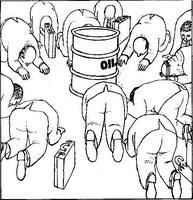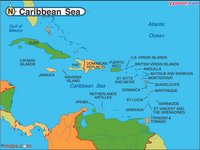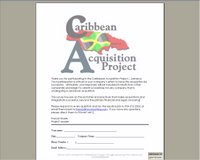 Framework cultural interventions rely, in part, on assisting employees at all levels in seeing their self-interests more clearly.
Framework cultural interventions rely, in part, on assisting employees at all levels in seeing their self-interests more clearly.
One criticism of this approach comes from a fear that if the pursuit of self-interests are the means, that the result might be mayhem as people do what they want selfishly.
The typical response is a moral one: “people should not be encouraged to be selfish.”
Unfortunately, moral reasoning rarely works, and seems to generate more guilt than anything else. Guilt is more often than not paralyzing, so the repetition of the morality of unselfishness produces little more than a stasis.
Instead, our approach is to deepen self-interest, trusting that if it is pursued wholeheartedly and rigorously, the result will actually be the same as that of the moralists. It is just that the pathway is much easier to follow, and is more likely to produce results than repeating the greatest sayings from any of the moral writings produced to date.
To illustrate, let us look at President Bush’s war in Iraq.
He honestly believes that the war in Iraq is morally correct – of that there is little doubt. However, what he could perhaps be persuaded to see is that continuing the war is not in America’s best self-interest.
The country seeks to live in a peaceful world, and it is obvious that the Iraqi occupation has and will continue to generate more opposition in the form of jihadists, terrorists, nationalists, Islamists and others who are growing up learning to hate America. He might also see that it is in America’s interest to demonstrate that the use of force is not the best way to resolve differences, as it tend to breed further force. Instead, it is in America’s best interest to demonstrate what peaceful approaches can accomplish in the hope that others may be persuaded to follow suit.
I am not saying that this will work or not with President Bush, just that it is more likely to accomplish the result, merely because the self-interests from which he is making decisions is just too narrow to succeed.
The book Freakonomics, makes the case that most drug dealers live at home with their mothers. They cannot afford to live on their own as the vast majority of them “earn” less than the minimum wage from dealing drugs. Only a tiny percentage “make it” to the top (as in any corporation,) and along the way the risks of being killed by another gang member, imprisoned or overdosing is considerable.
Perhaps the only reason that young men choose to be dealers is that they are unaware of the true nature of their full self-interests, and therefore, how to accomplish them. To say it somewhat differently, their choice to enter the gang is based on a very thin slice of self-interests.
A drug addict who takes the very first hit from a crack pipe does not do so with the intention to kill themselves slowly, painfully and publicly, even when there is abundant evidence around them that this is their likely fate. Instead, at the moment before they inhale their true self-interests are hidden from view, or obscured by their need to feel good, be accepted or to numb themselves from inner pain.
Their choice to do drugs is based on a small subset of their true self-interests.
Unfortunately, in today’s world we suffer from accusations of selfishness, and this prevents us from pursuing self-interests openly. Instead, we cover them up by pretending that our actions have nothing to do with us.
All it actually reveals is that we have been thwarted in our thinking, and stopped from pursuing our self-interests a far as we could.
The irony is that the person who has a commitment to deepen their self-interest quickly discovers that (to the surprise of the moralist) it deeply involves and includes other people.
As a thought experiment, take anything or concept of value: love, money, work, sex, possessions, service, giving, having fun, etc. Think of how each of them only makes sense in the company and experience of others.
Getting more sex involves giving more money. Getting more service requires giving more service. Having more love means giving more love. Having more work means giving more work.
The pursuit of self-interest does not lead to an inward-turning selfishness – not if there is rigour and honesty. Instead it leads to the discovery that when I have more of what I really want, you have more of what you really want.
This simple line may take a lifetime to appreciate, but it need not.
Instead, we can accelerate how we all learn its truth by encouraging each other to learn how true it is from actual, first-hand experience, rather than from someone else in the form of a dictate.
There might be a shortcut available to all of us here. Gandhi said: “If you want to change the world, become the first change.” We might expand that here to mean, “If you want anything, pursue it, and discover the degree to which it involves and includes other people, then act freely to want it for all.”
That might be the way to know, deep in our, hearts that our interconnectedness is real, strong and true. Martin Luther King said “We are connected .. interlocking web of …mutuality.” In Africa there is a word: Ubuntu – which means that I am all I can be, until you are all that you can be.
Perhaps this all works because we humans are all so very similar – made from the same “stuff.”
I want to be loved, and so do you. I want to love, and so do you. Loving is much easier when we both know what we want, and that it is the same thing.
Selfish? Who knows… Motivated by self-interested? Absolutely.
 At the Spanish-owned Fiesta hotel construction site in Hanover yesterday, an employee was shot, the workers rioted and burned a building and several vehicles, and the management team had to be airlifted out by helicopter.
At the Spanish-owned Fiesta hotel construction site in Hanover yesterday, an employee was shot, the workers rioted and burned a building and several vehicles, and the management team had to be airlifted out by helicopter.






